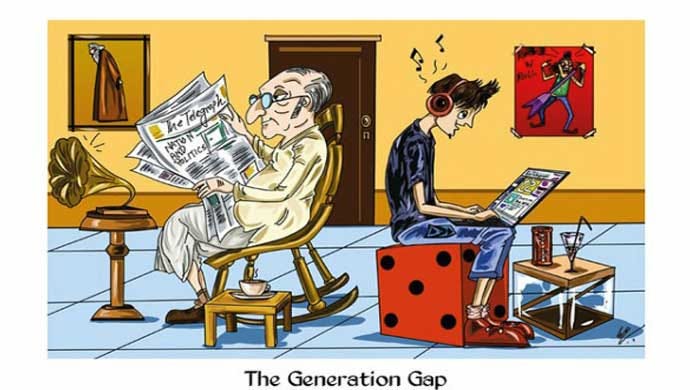Back in my day
We did 36 hour shifts
Came back the next morning
Traced old notes, retrieved
Survived 8 calls per month
We did all the ECGs
Had 40 patients to round
Transcribed medication lists
We pushed stainless steel trolleys
piled up with patient files
After ordering antibiotics
We administered from the vials
Patients were good to us
Our mentors, tough love
We did the best we could
And that was enough
Back in my day
Welfare wasn't spoken of
Mental health was assumed
When the going got rough
You ask for concession
I fear you won't learn enough
How are you going to learn
I can see through your bluff
Back in my day
We skipped meals and made do
Now for tutorials
You need bubble tea too
Back in my day
We didn't take leave
Now you keep saying
You need more debriefs
I wish you stopped saying
'Back in my day'
It makes you sound distant
Does it help in any way
You call me Strawberry
Or Snowflake sometimes
Does it make you feel good
Superior, sublime
You were once just like us
Finding your footing
Exploring and struggling
Surviving, self-doubting
You were once just like us
With ambition and passion
Thrown in many directions
Is it wrong to question?
Blindspots abound
In all generations
Soften your gaze
instead with appreciation
We don't promise to love
36 hour days
We value purpose, meaning
Inspire us and we'll stay
We challenge your generation
To look beyond and praise
For we, this generation,
Are the hope in future days
We did not ask for computers
But thank God for 'copy and paste'
The time saved we can use for
Urgent scans you ordered us to chase
We look up to you
And admire what you braved
But 'Back in our day'
Only separates and frays
Appreciate, respect us
Build us up and make way
Empathize, walk with us,
Till we take over someday
Our next generation
Generation A
We don't always get them
But we won't 'Back in our day'

Being born in the year 1982 is special, not just because it's a year for good wine, but it's also in between generation X and millennials. In fact, Sarah Stankorb first coined this micro-generation as Xennials (born between late 1970s and early 1980s).
Why is it unique? Perhaps it is a generation of people who exhibit characteristics of both generation X and Millenials because they lived through the analog childhood, and digital adulthood.
Besides the 'generational fuzziness' of Xennials, our microgeneration often find ourselves experiencing the brunt of criticism from both generations. I have been the recipient of many well-intentioned Gen Xs telling me 'Back in my day'. Yet, I have also received the 'you don't have Tik Tok?' (No I don't and I'm still trying not to.)
I often find myself playing the role of a moderator between generations. I understand why they turn to their phones for immediate access to information during a tutorial, while Gen Xs may feel offended. (Forgive me for the broad generalization especially if you are an enlightened Gen Xer.)
Whichever generation you identify with, this poem is my reflection of how we can practice generational empathy in our workplace. Xennials and Millenials are starting to take on more senior positions in the workforce. There is a need for us to be erm.... woke. (For Gen Xs, it's a term used to mean being aware of important issues especially social injustice - it has been used since the 1930s, but gained traction after the Black Lives Matter movement.)
'This poem calls for a 'softer gaze of appreciation' for each generation. For the Gen Xers, many of whom are the Bosses, to unite, not divide - by avoiding the immediate disadvantage you invoke when you utter 'Back in my day'. For the Millenials, if you get the chance to listen to a 'Back in my day' story, distil and discern, or treat it like a history lesson.
The future of medicine holds much uncertainty and promise. When Generation Alpha comes on board to our workforce, they will be well adapted to ever-changing technology, they will be efficient, passionate, purpose-driven, optimistic, environmentally-conscious and vocal about important issues. We have to start a culture of generational empathy so that we make way for a secure generation that knows their worth. I don't know of a better generation to take the lead in the future.
References:
Jamie is a palliative care physician who believes she has the best job in the world — her work entails listening to untold stories of extraordinary lives. While this can be heavy and intense, poetry is her way of channeling these special encounters to better understand our common humanity. More of her work can be found here.





I think the empathy & compassion extends both ways too - may our Gen Zs and after also realise that we Gen-Xers and before have lots of experiences and good stories to share. Some of us were already awake before the term woke came into popular use…😉and the reason I don’t have Tik Tok is that I don’t need to have it to be aware of what’s happening in the world…😜🤣🤗
I hope this article sparks conversations (whether in the form of nostalgia, deep thought, debate, reflection...). Special thanks to Vic for posting it in HEART!